Imagine waking up before sunrise in a far-flung village deep in The Himalayas.
It’s so cold that when you step outside, your hair freezes. There’s little to no internet. You’re training hard every day to compete in a dangerous horse race that will establish your credibility, so that you can help meet the community’s needs.
Or leaving your job to become a fossil hunter, like some sort of real-life Indiana Jones.
Or selling your house, leaving your country, and traveling the world full-time.
These are real people I know.
Friends who’ve made choices that don’t fit neatly within society’s framework - and who inspire me to question, dream, and define my own direction.
Venturing forth from the world of common day
Have you ever looked around and felt like you’re living a different story than everyone else? As if the choices you’ve made - your values, your priorities, what you find meaningful - don’t quite fit the script many people seem to be following?
If so, then this piece is for you.
“So many of us put limits on ourselves,” a mentor once shared with me, many years ago. “We’re afraid to think broadly about life and its possibilities.”
I remember that conversation vividly… We discussed his business in Hong Kong, death cafes, and a boat he was fixing up to explore the waterways of South America.
He was charting his own course, literally and figuratively.
I realized that so many of us never even dare to pick up the map.
It makes me think of a storytelling concept I sometimes refer to here at The Lighthouse, known as the Hero’s Journey. It’s a narrative structure popularized by Joseph Campbell in his book The Hero with a Thousand Faces:
A hero ventures forth from the world of common day into a region of supernatural wonder: fabulous forces are there encountered and a decisive victory is won: the hero comes back from this mysterious adventure with the power to bestow boons on his fellow man.
It can be a useful framework to layer into how we lead our own lives, especially if we want to be active agents in their unfolding and tap into the possibilities.
The Ninth Path
Last year, I stumbled across a letter that Hunter S. Thompson wrote to a friend in 1958. It hit me at a time when I was questioning everything.
It’s on the longer side but is well worth reading, so here we go:
[This] is the question: whether to float with the tide, or to swim for a goal. It is a choice we must all make consciously or unconsciously at one time in our lives.
…But why not float if you have no goal? That is another question. It is unquestionably better to enjoy the floating than to swim in uncertainty.
So how does a man find a goal?
…The answer - and, in a sense, the tragedy of life - is that we seek to understand the goal and not the man. We set up a goal which demands of us certain things: and we do these things.
…When you were young, let us say that you wanted to be a fireman. I feel reasonably safe in saying that you no longer want to be a fireman.
Why?
Because your perspective has changed. It’s not the fireman who has changed, but you… This goes on and on. Every significant experience alters your perspective.
So it would seem foolish, would it not, to adjust our lives to the demands of a goal we see from a different angle every day?
…To put our faith in tangible goals would seem to be, at best, unwise. So we do not strive to be firemen, we do not strive to be bankers, nor policemen, nor doctors.
WE STRIVE TO BE OURSELVES.
Thompson elaborates on his way to the main point:
But don’t misunderstand me. I don’t mean that we can’t BE firemen, bankers, or doctors - but that we must make the goal conform to the individual, rather than make the individual conform to the goal. In every man, heredity and environment have combined to produce a creature of certain abilities and desires - including a deeply ingrained need to function in such a way that his life will be MEANINGFUL.
…As I see it then, the formula runs something like this:
A man must choose a path which will let his ABILITIES function at maximum efficiency toward the gratification of his DESIRES.
…In short, he has not dedicated his life to reaching a pre-defined goal, but he has rather chosen a way of life he KNOWS he will enjoy. The goal is absolutely secondary: it is the functioning toward the goal which is important… Let’s assume that you think you have a choice of eight paths to follow (all pre-defined paths, of course). And let’s assume that you can’t see any real purpose in any of the eight.
THEN - and here is the essence of all I’ve said - you MUST FIND A NINTH PATH.
That line stopped me in my tracks.
If none of society’s scripts resonate with you, Thompson suggests, then you have an opportunity to write your own.
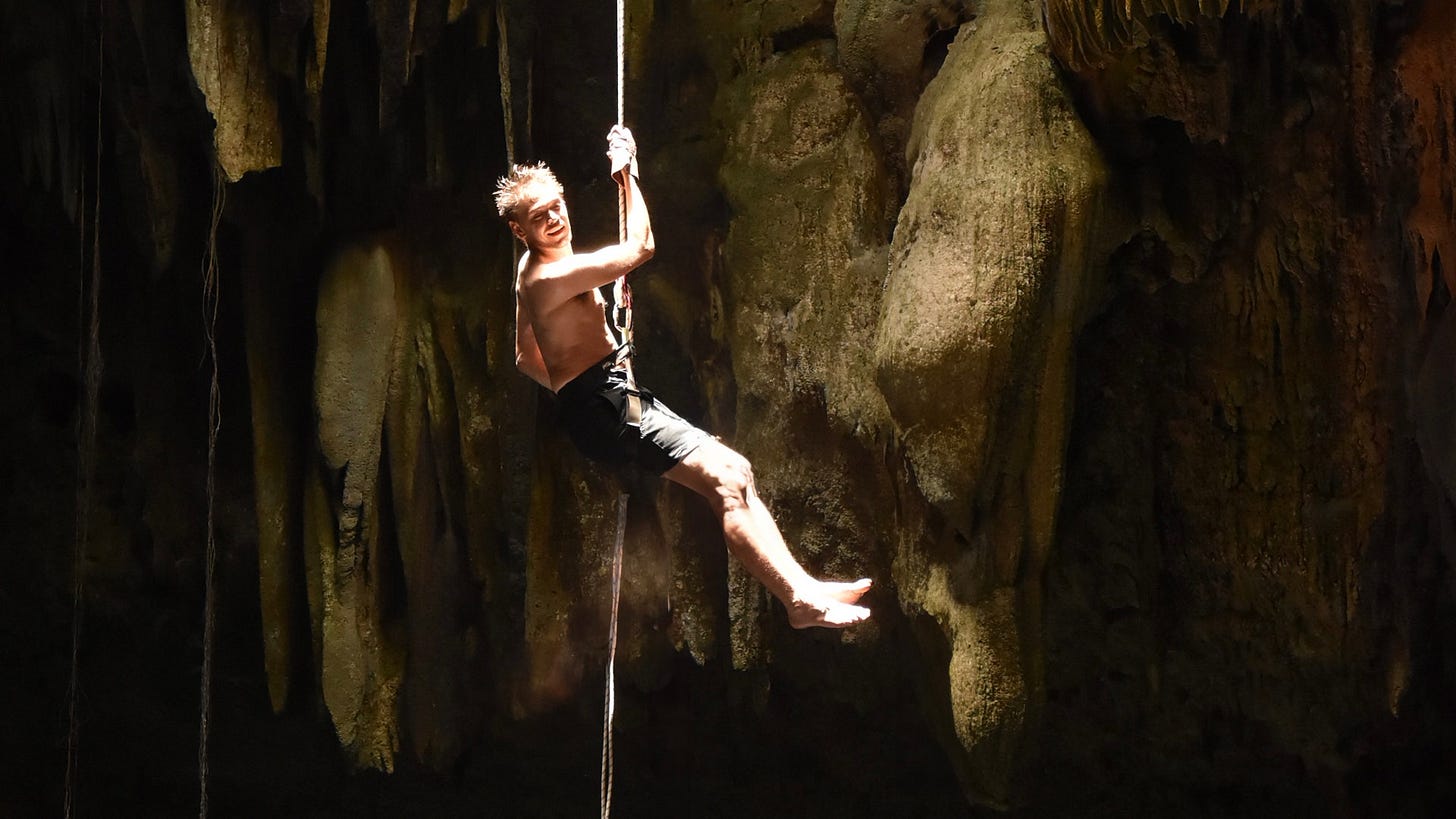
He continues:
Naturally, it isn’t as easy as it sounds.
So if you now number yourself among the disenchanted, then you have no choice but to accept things as they are, or to seriously seek something else.
But beware of looking for goals: look for a way of life. Decide how you want to live and then see what you can do to make a living WITHIN that way of life.
But you say, “I don’t know where to look; I don’t know what to look for.”
And there’s the crux.
Is it worth giving up what I have to look for something better? I don’t know - is it?
Who can make that decision but you?
…I’m not trying to send you out “on the road” in search of Valhalla, but merely pointing out that it is not necessary to accept the choices handed down to you by life as you know it. There is more to it than that - no one HAS to do something he doesn’t want to do for the rest of his life. But then again, if that’s what you wind up doing, by all means convince yourself that you HAD to do it.
You’ll have lots of company.
No. Something deep inside of me wouldn’t let me settle for “lots of company”.
I wanted to swim, not float.
Where is your path taking you?
I’ve since read Thompson’s letter many times… For me, it recalls the words famously inscribed on The Temple of Apollo in the Ancient Greek precinct of Delphi:
“Know thyself”.
It’s some of the oldest advice in the world, and some of the hardest.
In screenwriting, we spend a lot of time developing characters so that they feel like real people you might encounter somewhere.
A key part of that process - and of building the scenes in which they participate - is identifying what characters want. Not in vague, nebulous terms, but rather with clarity and specificity, so that characters are relatable and the stakes are clear.
“I want to learn the ways of the Force and become a Jedi like my father”, Luke tells Obi-Wan in Star Wars, kicking off his classic Hero’s Journey. His desires direct his decisions along a path that leverages his abilities as a promising Jedi Knight.
To my mind, that is in effect what Thompson is saying in his letter - you need to know who you are, you need to know what you want, in order to lead a fulfilling life.
If you don’t know who you are, if you don’t know what you want (or if you’re not honest with yourself about it), then life may pass you by as you wonder what it was for.
I don’t know about you, but that scares the shit out of me.
Is the path you’re on in your life the path you want to stay on?
If so, that’s a beautiful thing.
If not, then do you believe that you have the power to choose a different path?
To be very clear: The point here isn’t to peddle some sort of entitled, idealistic, cotton candy version of the American Dream (“you can achieve anything you want if you work hard enough!”), so much as it is to help illustrate that it’s possible to change your life in both big and small ways. You can choose a different path by making a different decision - upsetting your “status quo”, if we’re going to extend the screenwriting analogy! - within your own unique context.
What would have happened if Luke had decided to stay on Tatooine?
If he’d resigned himself to life as a humble farm hand?
Imagine that path for him. Heck, imagine the fate of the galaxy.
Said differently, you are the protagonist of your own story.
And in writing it, personally, I’ve found it useful to distinguish between “What questions” and “How questions”.
“What” vs. “How”
What I mean is that, quite simply, the question “What do I want?” is distinct from the question “How do I get there?”, and it can be useful to consider them separately.
Naturally, the two are entangled, but by separating them in the playground of your mind, you give your desires space to reveal themselves. You’re less likely to repress them - and more likely to be honest with yourself - since the thought experiment temporarily unshackles you from practical considerations.
Once you’re in tune with your desires, then you can start to address all of the realities that stand between you and the direction you want to move.
For example, last year, I felt stuck in my life in The Netherlands. It took a tremendous amount of honesty with myself to realize that I was on a path I did not want to stay on.
I lost count of the number of rambling walks I took through the Dutch countryside, beneath beautiful skies, fighting my way to clarity… Realizing I couldn’t stay, while accepting how much it was going to cost me to make such a big life change.
Eventually, I knew what I had to do.
So over the course of six months, I found it within myself to scale the mountain of practical and emotional considerations necessary to leave.
“What questions” first, then “How questions”.
But how do you figure out the “What” if you’re not sure of the answers?
What are you willing to struggle for?
Thompson doesn’t place a ton of emphasis on goals: “We must make the goal conform to the individual, rather than make the individual conform to the goal… The goal is absolutely secondary: it is the functioning toward the goal which is important.”
That feels antithetical to the cult of productivity that thrives in much of western society. Thompson suggests that way of life is what’s important… Finding the “functioning” that you enjoy. “Decide how you want to live and then see what you can do to make a living WITHIN that way of life.”
So for example, to bring it back around to my delightfully left-of-center friends:
If you’re passionate about helping communities deep in The Himalayas, arrange your life around it. If you’re drawn to the mystique of fossil hunting, learn about it and dig in. Or if you want to sell everything and nomad indefinitely, then carve out the time and space you need in order to work toward making that vision a reality.
Again, I’m not preaching a rosy version of the American Dream, here. It’s wise to consider your abilities and circumstances when weighing any life decision. If you have a family, then dropping everything to become a real-life Indiana Jones may be off the table - at least for now! I’m just encouraging you to truly answer this question:
What do you find meaningful?
Name it. Claim it.
And be patient with yourself while you do:
…Trust this process. In my experience, it often takes time for your truth to emerge - especially if it means swimming against the tide.
Ultimately, it’s about setting priorities, so that you’re living with intention in a way that’s consistent with who you are deep down.
Thompson’s advice feels as fresh today as it did in 1958, but Mark Manson offers us a more modern take when he asks:
“What pain do you want in your life? What are you willing to struggle for?”
…Happiness requires struggle.
The positive is the side effect of handling the negative… What we get out of life is not determined by the good feelings we desire, but by what bad feelings we’re willing and able to sustain to get us to those good feelings… If you want the benefits of something in life, you have to also want the costs…
What is the pain that you want to sustain? That answer will actually get you somewhere. It’s the question that can change your life. It’s what makes me, me and you, you. It’s what defines and separates us, and ultimately brings us together.
In other words:
Who you are is defined by the values you are willing to struggle for.
People who enjoy the struggles of a gym [in Thompson’s words, a “way of life”] are the ones who get in good shape. People who enjoy long work weeks and the politics of the corporate ladder [a “way of life”] are the ones who move up it. People who enjoy the stresses and uncertainty of the starving artist life [a “way of life”] are ultimately the ones who live it and make it.…Our struggles determine our successes. So… choose your struggles wisely.
Just make sure that you do indeed choose.
Because as Thompson writes, “a man who procrastinates in his choosing will inevitably have his choice made for him by circumstance.”
Remember, in the end, this is your “Hero’s Journey”.
Don’t float through it, friend. Let’s swim.
Why you need to find your people
What if your life doesn’t quite fit the script others seem to be following?
It can hurt to look around and feel like you’re doing things differently compared to many of the people around you. Having spent much of the last decade doing the whole remote work digital nomad thing, I’ve been there. I have friends who assume I’m on an endless vacation. I’ve been in relationships where I feel unseen because my partner’s own interests, views, and values don’t align with my own, causing them to dismiss my way of life as the ungrounded fantasy of a perpetual Peter Pan.
It’s vital to surround yourself with people surfing the same wavelength as you.
Not to the exclusion of outside views - not in a way that rejects constructive criticism, because to live is to grow! - but in a way that reminds you that you’re enough.
Speaking from experience, the search for the Ninth Path can feel lonely - but that doesn’t mean you’re lost. Sometimes, it means you’re on the edge of something new.
So keep searching, if you can’t not.
And when you do find people looking for their own Ninth Path - because I promise you, they’re out there - recognize it for the gift that it is.
Call each other forward, and enjoy the journey together.
That’s part of why I’m leaning harder into our community here. The Lighthouse is a gathering place for all 20K+ of us to connect, regardless of where we live in the world (currently, we’re from 141 countries)! It’s an opportunity to explore how stories shape us, and how we shape stories - through cinema, travel, and our day-to-day lives.
Because stories aren’t just entertainment.
They’re how we make sense of the world and our life paths.
Stories help us navigate the change, uncertainty, and transformation that’s part and parcel of every Hero’s Journey, and they’re meant to be experienced together.
So I’m curious… Are you searching for your own “Ninth Path”?
What’s calling you right now? What feels meaningful?
Feel free to share in the Substack comments.
If any of this resonates, I’d love to hear about your journey!


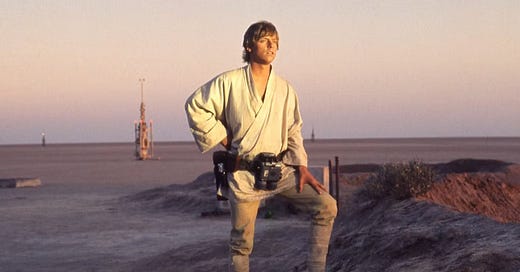




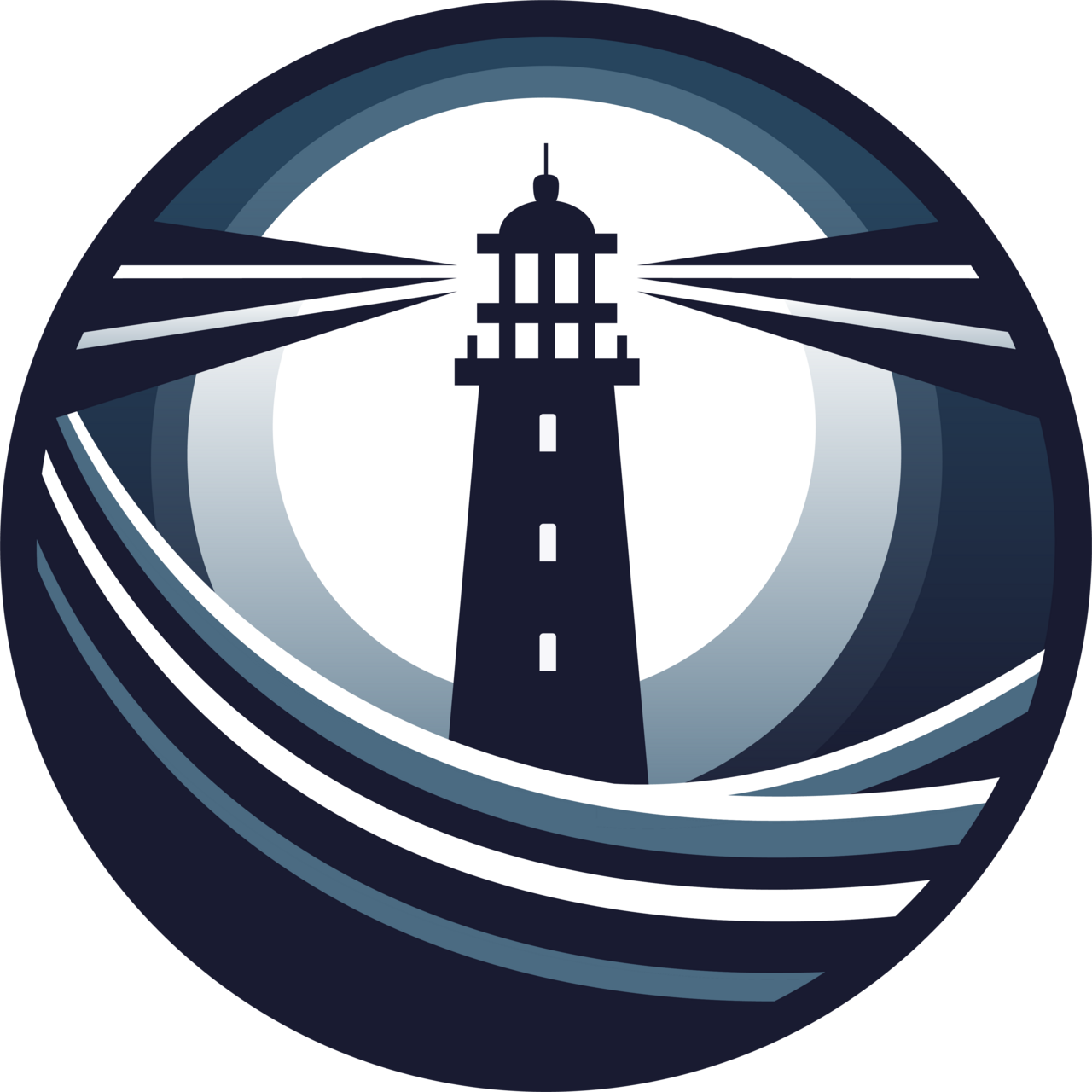

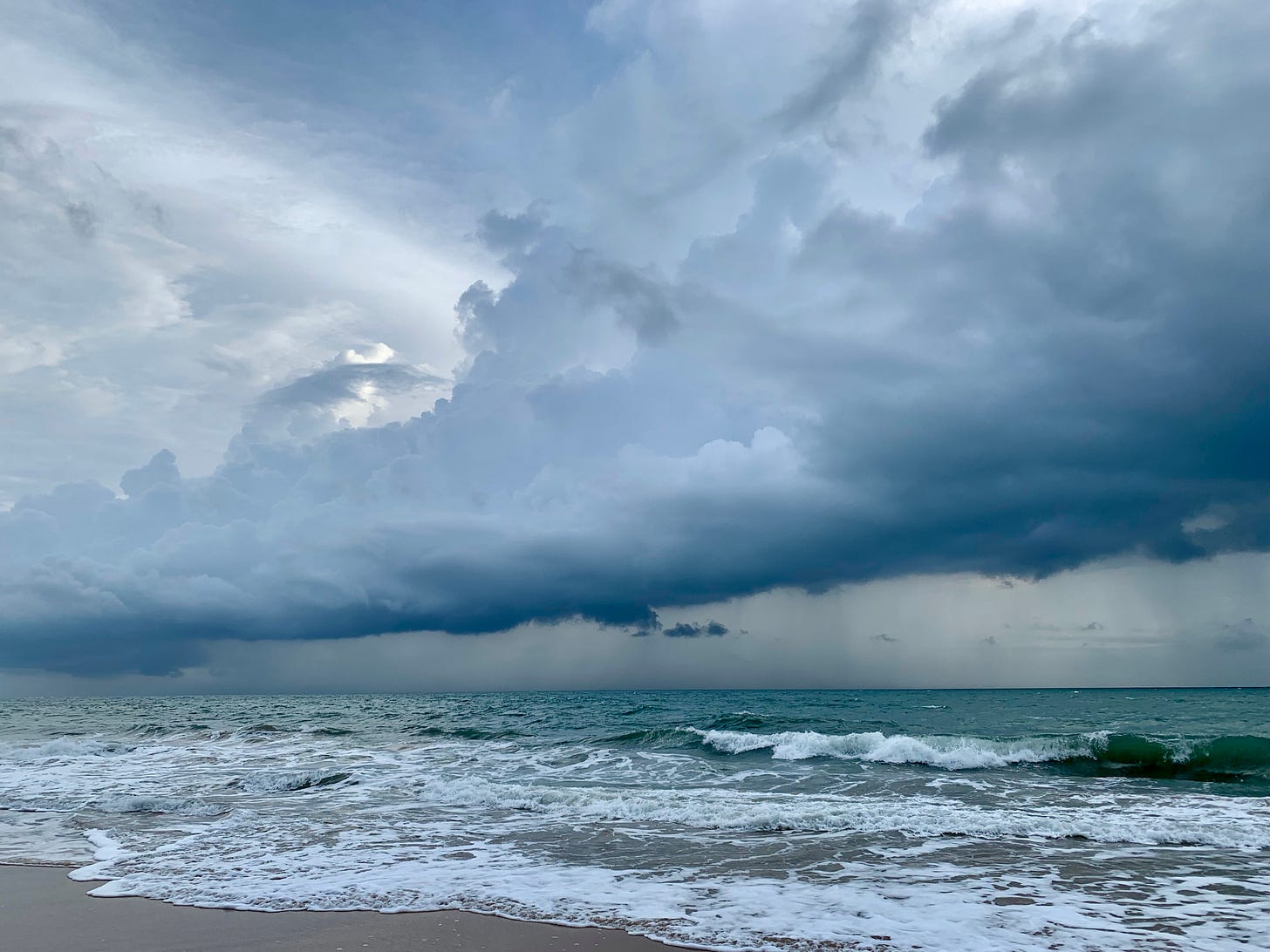




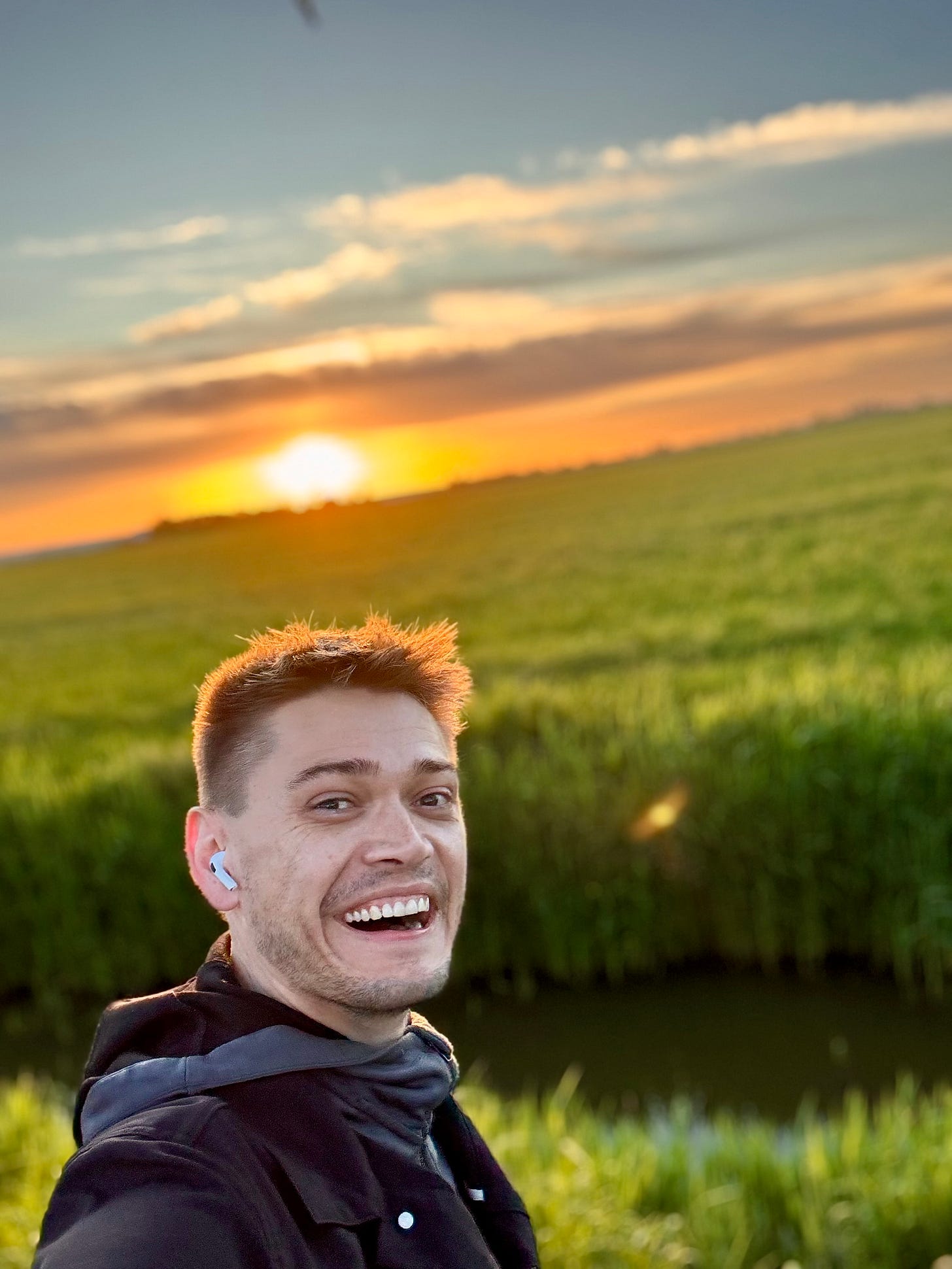


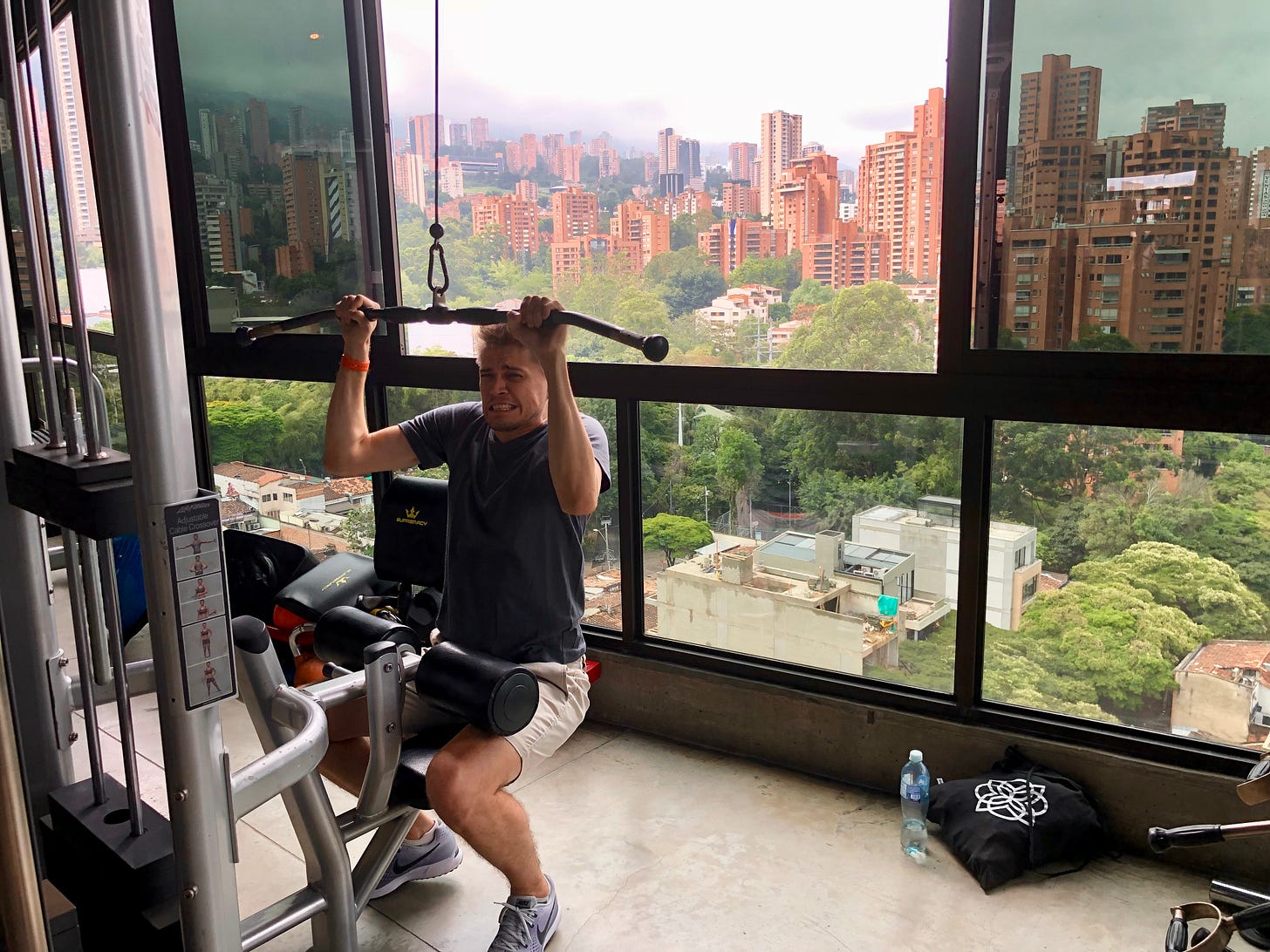



YES! YES! YES!
"[This] is the question: whether to float with the tide, or to swim for a goal." Very profound question. It's important too to remember to enjoy both the floating and the swimming. Most of the time we forget that.
Also as someone who has chosen the ninth path too often, I think life is not easy for those who don't. Circumstances determine what path we might follow but there's no easy path.